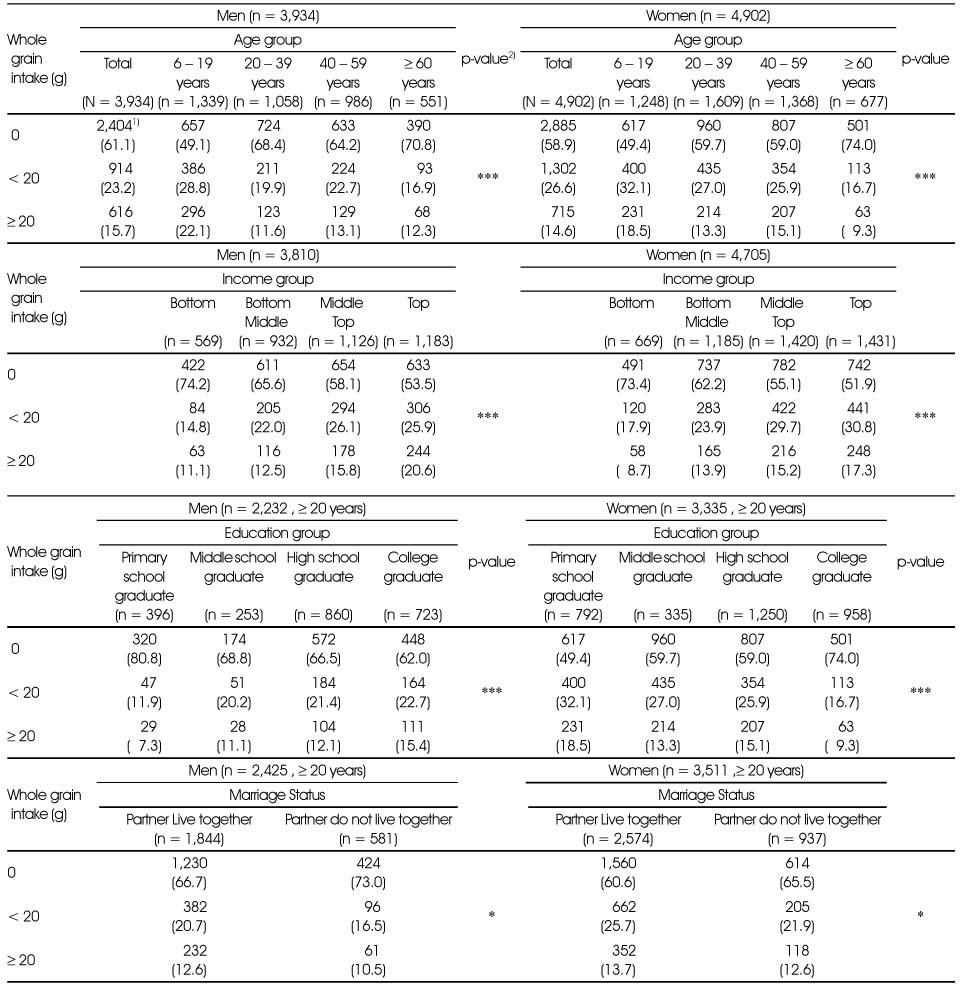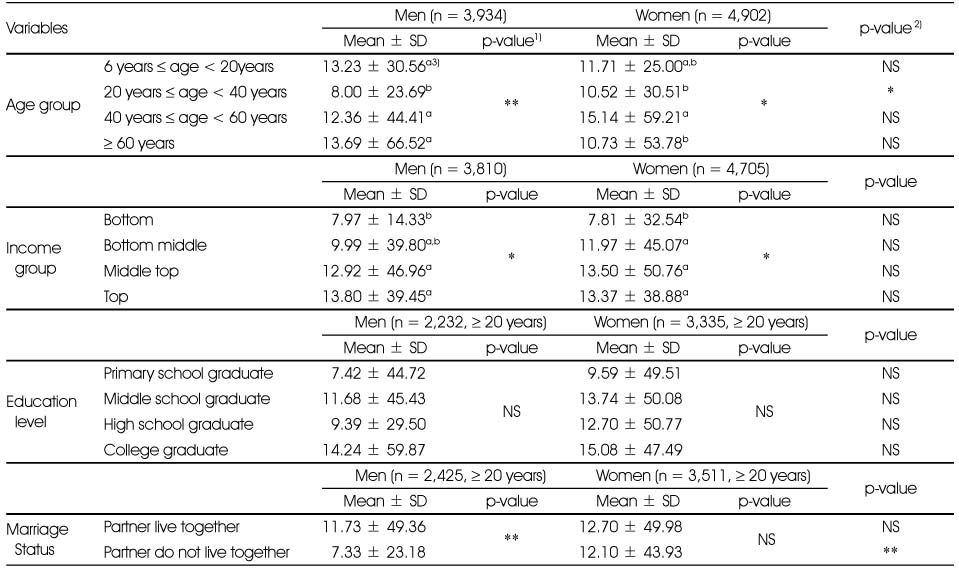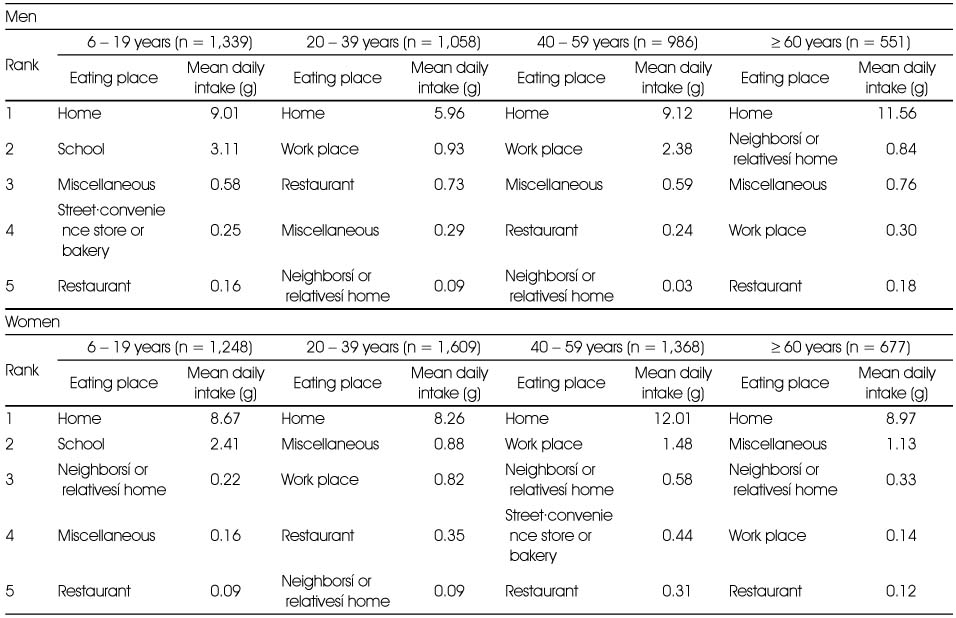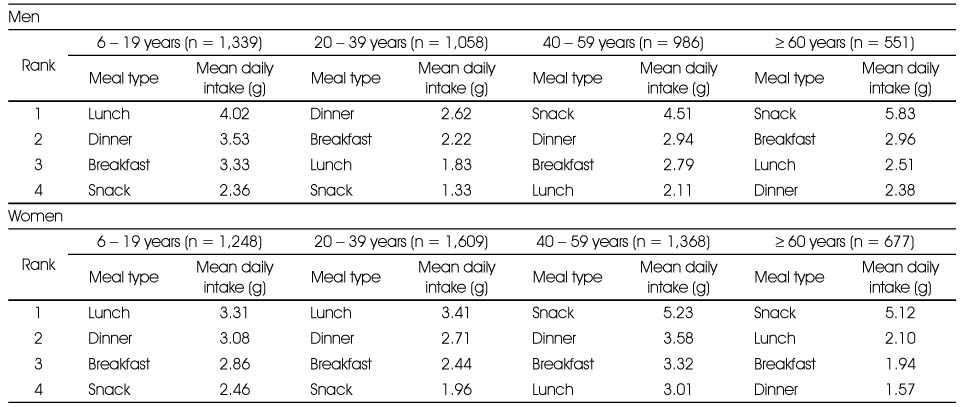Association of Whole Grain Consumption with Socio-Demographic and Eating Behavior Factors in a Korean Population: Based on 2007-2008 Korea National Health and Nutrition Examination Survey
Article information
Abstract
The objective of the current study was to examine associations of whole grain consumption with socio-demographic (i.e.: sex, age, household income, education, marriage status) and certain eating behavior factors (i.e.: dish source, eating place, meal type) among a generally healthy Korean population. Using twenty-four hour recall data from the 2007-2008 National Health and Nutrition Examination Surveys, whole grain intake (g/day) was calculated for a total of 8,836 generally healthy Koreans aged 6 years and higher. The study subjects had very low whole grain intake. Specifically approximately 60% of the subjects reported no whole grain consumption on the survey day, and mean daily intake ranged from 8.0 g to 15.1 g in different gender and age groups. Living with a spouse was found to be a positive environment factor for whole grain consumption, especially among men. As household income levels increased, whole grain consumption status also improved. The proportion of non-consumer was lowest in a 6-19 year group, and mean intake amount was highest in middle-aged adults. Major dish sources for whole grain consumption included boiled rice with mixed grains, corn, boiled rice with brown rice, cereal products, and other types of boiled rice. It was found that whole grain consumption was highly affected by eating places rather than meal types. The best contributing eating place was home in each age and gender group. The study findings may be useful in planning nutrition education strategy and formulating dietary behavior guidelines for whole grain consumption improvement.
Notes
This research was conducted by the generous financial support of the Youlchon Foundation (Nongshim Corporation and its affiliated companies) in Korea.




